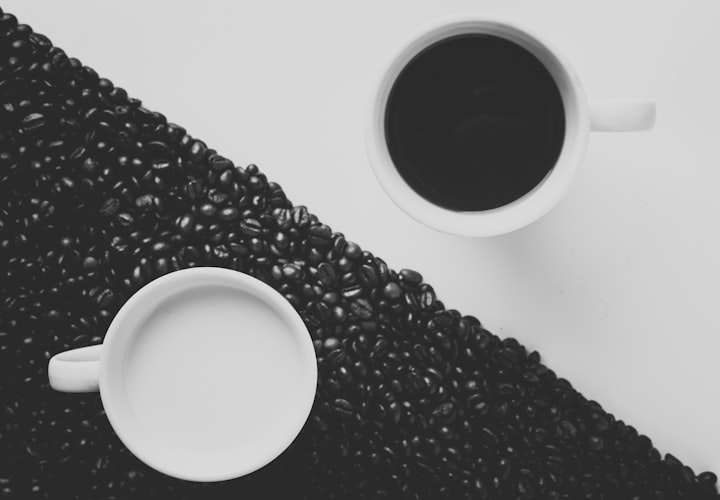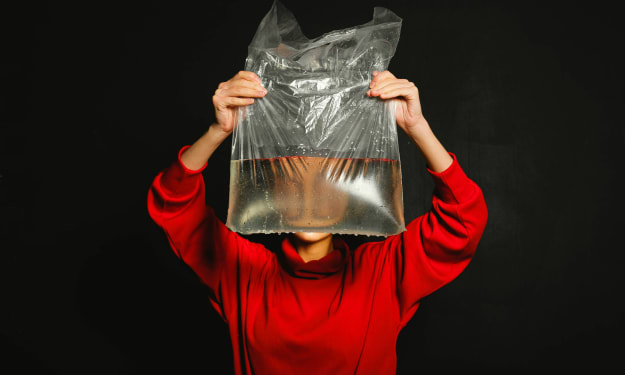On unhurried creativity
Second installation in my series of essays on 'Writing'

Preface:
Every time we remember, I recently discovered, we create new neurons, new pathways that store information. Which was in stark contrast to my presumption that I simply returned to the permanent and reliable folds in my brain. Folds that were made when I fell off the bike for the first time or when I brushed my teeth the night of my first kiss, eulogising its sweetness. So that tied in comfortably with the reliability of memory. Was it mud or concrete that I fell on, did I run my fingers through her hair or held them awkwardly behind my back?
But if looked at this fact from a different perspective, I think there is a neat conclusion to this. That is, if the Greek root for the word ‘poet’ is ‘creator’, then to remember is to create, and thus, to remember is to be a poet. Everyone’s a poet, as long as they don’t forget to remember and our life therefore, a poem. Who cares about the accuracy of the details outside the court of law?
***
This essay/exploration/discussion is in continuation of my series on ‘writing’. First one can be found here -
I don't have a fixed destination in mind for this series; my aim is to craft a space where these thoughts can exist and provoke resonance among like-minded individuals or those with opposing viewpoints. I invite you to share your thoughts in the comments section and elaborate on what your own process of 'writing' looks like. Your experiences and insights are a valuable addition to the ongoing conversation.
I write slowly. I think in scenes and I keep those scenes in my head for weeks, sometimes months. I think about everything. How does the light fall, what is the time of the day and what is the mood of the scene. I animate and live in that world for a while, so when it comes to writing, it almost feels like I am recollecting a memory, a trickery of sorts. On the page then, I fuse recollection with innovation, enhancing the scenes with additional details. Ultimately, not everything I imagine ends ups in the final piece but it helps with the flow. I realise it’s a bit strange that most of it is in my head and the writing is almost like a residue, a powered trail of my mind’s eye.
I wasn’t always like this though, especially when it came to writing, a victim to the capitalistic mentality of weaponising productivity. Just because we don’t suit up, take the subway at 4 AM to a skyscraper on the Wall St to ‘work’, i.e to ‘write’, it doesn’t mean we are invincible or have eluded those pressures. We all have that friend in the community who goes, “oh I am on my fourth novel, what about you?” or the one who is writing a poem a day. There is an inherent shame in not producing in a culture where the guiding framework is capitalism. It’s so central and dominant even in the writing community where our metaphors for editing a piece are tied to manufacturing terms like ‘clean up’, ‘tighten’, ‘polish’, or the ‘workshop’ which is essentially a manufacturing centre. Just unable to cope up with these pressures (and questioning my skills and place as a writer over a year), I looked eastwards for alternative methods of creativity.
In Eastern philosophy, particularly from Vietnam or China, there are a lot of texts which explore the very concept of creativity and refuse to relegate it to a mere tool. ‘Yin and Yang’ in virtue of literature were a great reckoning for me. Yin is seen as the central mode of creativity because it’s the mode where one waits and acquires knowledge, where you are on the vast sea of imagination, propelled by curiosity, casting a wide net for the bounty to fill. Yang is the decisive moment when you decide to harvest your bounty. I think in the West, we often don’t trust or use Yin, while we champion Yang. It’s like fishing with bare hands and one could be the best barehanded fisher but you will never be able to outdo the person casting the net. Casting the net is highly unpalatable as we have a great distrust for stillness in our culture in the West. Stillness is weakness, stillness is death. Even in the early stages of education, we reward the child who says ‘anything’ in class with participation points but the child who maybe thinks or takes a bit too long on a question, absorbed in the interior life of thinking is all of a sudden tagged with a learning deficiency.
It took me a while to rid myself of the pressures of this paradigm, but I've grown to appreciate the idea of being a thoughtful, unhurried creative. If the conventional 'normal' path doesn't sit right with you, I encourage you to embrace a slower, more deliberate creative process. This allows ideas to simmer in your mind, and by the time you sit down to create, you can take pride in the work that's already been done within you. This method may not always align with the Western system's quantifiable measures of productivity and can sometimes feel like a lonely journey. But it's essential to recognise that alternative approaches exist for those who, like me, find themselves at odds with the dominant structure.
Each year, there’s a part of me that I have to kill to survive. I often think about those parts. But it’s the part I fail to kill is the one that brings me to this page. Language and it’s metamorphosis. As a species, as life on this planet, I can argue we’ve been dying for at least a millennia. But Physics tells us that energy doesn’t die, it’s always conserved, rather, transformed. And we can always create it. With language, we can create energy. Use it to divide people and build walls, or use it to bridge our future to the present, where we can see each other more clearly. Our formal education has often overlooked the idea that we are not merely spectators in the unfolding of the future, particularly in the evolution of our language. We are stood at the valley and the bridge is unformed and all we have is our body and with it, some words. I want us to use it to talk about our obsession and fears, our idiosyncratic joys, peculiar desires, and ecstasies (however fleeting). And I believe in the world where all those will remain amorphous and resist the decay actualised by the so called ‘rational’ world. I want to tell you that I trust you. That despite our inherent humanity and shared trepidation, here, under an often starless night, at this unfinished bridge that leads both nowhere and everywhere, we can make a space for ourselves, for everyone to live. And we will.
***
Part 3 will focus broadly on 'poetry' as an art form and my relationship with it. Do let me know if you want me to cover any specific topics related to that. Thank you for reading and for your patience, for this took longer than expected. Speak soon.
About the Creator
Mesh Toraskar
A wannabe storyteller from London. Sometimes words spill out of me and the only way to mop the spillage is to write them down.
"If you arrive here, remember, it wasn't you - it was me, in my longing, who found you."







Comments (4)
Congratulations on your Top Story
"It's all right up here in my head. The rest is just scribbling & dibbling, dibbling & scribbling.". ( paraphrase of Mozart in "Amadeus"). I'm glad you trust me. I certainly don't. But I do hold onto hope.
A lovely, meandering piece that took me where you have gone. Mesh, this made me think so deeply about memory and it’s relationship to writing. I love your concept of killing pieces of yourself in order to evolve. As I get older, I am more aware of the memories and desires and habit patterns that have disappeared from me - and still, I am prodding their lack with my mind. Something I think would be fun for you to explore in your poetry essay is the nature thereof. I remember my first time hearing modern poetry spoken out loud and thinking “so poetry can be ANYTHING,” after a childhood full of classic rhyme/verse/meter that didn’t stir me so deeply. But opinions differ - my mother, who supports my writing like no other, doesn’t like my poetry. She doesn’t think it’s actually poetry, because she never got on the modern bandwagon. Anyways, that’s a concept I would love to read your thoughts on!
Well hello, stranger. :D I feel like we’ve been having a synchronized conversation, though silent. I’m coming to appreciate space and time to create, going more slowly. I have realized that I dislike the scramble to produce everyday and I don’t want to lose the finesse of deep thought, and careful publishing. This essay helped me feel like this is a good thing. Embrace the yin for the benefit of creativity. Yang alternatives are subpar, reactionary, self-serving. “Everyone’s a poet, as long as they don’t forget to remember and our life therefore, a poem.” —😱 YES. This ties in nicely with an essay I’ve been working on for months. What a great read. So glad to see you in my notifications today. 😊